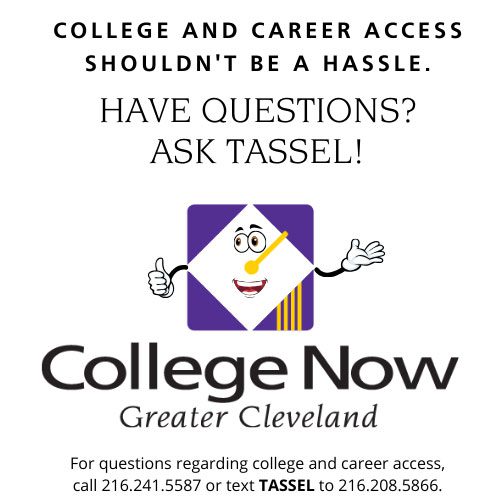th in educational attainment, and in Northeast Ohio alone, there are 40,000 open jobs – but 70,000 unemployed individuals. This is evidence of a widening skills gap between what credentials our residents have – and what credentials our residents need. The importance of higher education needs to be understood. Although college is expensive and can be challenging, the opportunities that having a degree or certification can bring are far more substantial than those that are found with just a high school diploma. Individuals with less than a high school diploma have an unemployment rate of 8 percent and those with a high school diploma are unemployed at a rate of 5.4 percent. Individuals with an associate’s degree, however, are unemployed at a rate of 3.8 percent, those with a bachelor’s degree at a rate of 2.8 percent, and those with a master’s degree at a rate of 2.4 percent. The average unemployment rate of all workers is 4.3 percent. Not only does pursuing a certificate improve your chances of employment, it also increases your lifetime earnings. With so many students choosing not to pursue higher education due to the cost, knowing that the investment will pay off in the end is a key piece of information. Workers with their bachelor’s degree make, on average, more than $600 more per week than workers with less than a high school diploma, and more than $400 more per week than those with their high school diploma. This adds up to quite a bit over the course of a career – the typical bachelor’s degree recipient can expect to earn about 66 percent more during a 40-year career than the typical high school graduate would earn over that same period of time. Earning more over a lifetime, of course, doesn’t change the immediate expense of a college degree. Luckily, many organizations and corporations understand the importance of higher education and want to advance their own workforces’ levels of education. Students right out of high school can look into job opportunities with companies that will help pay for their employees’ educations during their tenure with the organization, and adults who are already employed but want to pursue a degree or certificate in order to advance their economic well-being and family life should check with their companies to see what options might be available to them. The pursuit of higher education and advanced credentials and degrees are economically advantageous to employers; they want to employ the best workforce possible, and by offering their employees education incentives such as tuition payments, they can retain and improve their top talent, and better their employees’ economic well-beings. Enhancing the workforce is a huge way in which higher education pays dividends back into the community. Beyond having a workforce that is more prepared for 21st century jobs, though, having residents who are more educated is vital for the local economy. If the educational attainment numbers in Northeast Ohio can increase by just one percent, there will be a two billion dollar increase in the region’s GDP. This leads to a cycle – the more the economy in the region improves, the more it will attract residents to the area. Those residents will help contribute to the continued growth of the region, and the cycle will begin again. Beyond economic impact, however, is the culture change that increased educational attainment can bring to a community. The more adults who have degrees and certificates beyond high school, the more younger students will see that path as a normal, beneficial path to take. The Atlantic conducted a study of students accessing higher education, which found that 76 percent of students with two college graduating parents entered into a two- or four-year degree program immediately after high school; only 37 percent of students from no-degree families did so. Increasing the number of degree holders in a region is impactful is so many ways. It improves the region economically, it improves individuals’ economic lives and it strengthens the college-going culture that is needed to maintain the forward momentum. At College Now, we’re dedicated to helping to improve our region through the pursuit of education after high school.]]>
How Can Obtaining A Degree or Certificate Impact the Economy in Cleveland?




